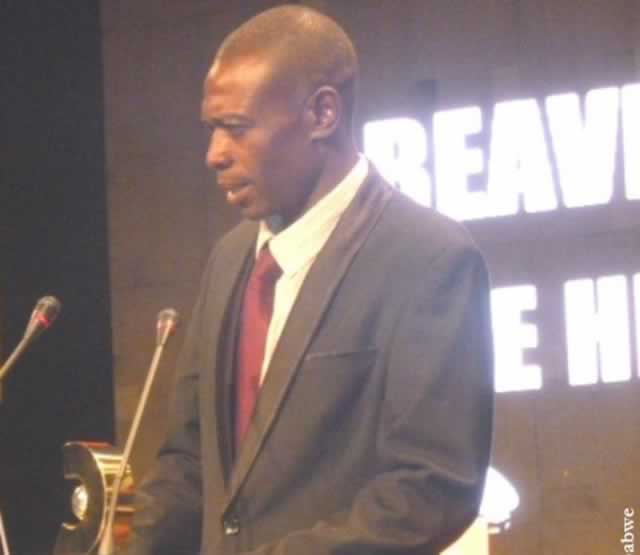Celebrating our literary heritage

Beaven Tapureta Bookshelf
The 15th NAMA ceremony held last Saturday had legends in the arts and culture sector presenting awards to the winners and this just locked very well with the theme “Celebrating Zimbabwe Heritage”.
Zimbabwe’s renowned artists who presented the awards include Zexie Manatsa, Albert Nyathi, Bob Nyabinde, Jesesi Mungoshi, Mechanic Manyeruke, all in the company of their sons representing the new artistic generation.
The exhilarating performance by Mono Mukundu and Willom Tight and their guitar-crazy sons got everyone nodding to the fact that we have wonderful arts and culture heritage to protect.
When my name was announced as winner of the 15th NAMA Outstanding Journalist Award (Print), I could not believe it at first but soon reality dawned on me.
I mustered energy and confidence, walked to the podium and, because it was the Mungoshis presenting the gong to me, tears welled up in my eyes.
I was stunned. I have profound respect for the Mungoshi family. Quickly, I told myself no one has to see the tears; this ceremony was a celebration, a celebration of Zimbabwe’s heritage.
Charles Mungoshi (Snr) is my literary icon, my every time inspiration just as he is to every writer in Zimbabwe.
His wife Jesesi, a renowned actress and son Charles Jnr, a rising author following in the footsteps of his father, both looking splendid there by my side, made me feel the overwhelming Mungoshi legacy.
I felt guided and humbled.
It felt like Charles Mungoshi (Snr) had given an order to his family to say “hey, go and present the award to that young fella who wrote about me some time back in his column”.
We shook hands and so Jesesi handed over the gong to me. I gave my speech, short and simple but even after I walked to the backstage with my award presenters, I could not help falling back into deep thought. The signing of certain papers and the photo shoot backstage was but just automatic as my mind reeled backwards.
I just thought I needed to accept that it’s me, that even though I am not the best journalist, there is now a prize and certificate sitting next to the books in the Bookshelf!
The Herald is outstanding in its passion for local literature. For many years now, we have witnessed broad coverage of literary matters in this newspaper. For almost half the days of the week The Herald commits itself to books.
That the Mungoshis presented me with the national award just reminded me of the story I had written about them in one of my instalments of Bookshelf. For me this is the winning story, the story that began in 1974. There is no better way to celebrate our literary heritage than to turn the clock back to 1974 . . .
I visualised Jesesi Mungoshi, then a single young woman, lying ill in her room at her sister’s house. She is apparently in pain. In a short moment, her sister’s husband comes into the room in the company of a friend and a fellow artist named Charles.
Introductions are made. Charles has already published his first book “Coming of the Dry Season” (1972) but this information escapes the intros and Charles keeps it that way.
Jesesi is not sure if the men are drunk or not but the first words Charles says are, “Ah saka tinoziva vakareba sei kana vakarara? (Ah, so how do we know her height when she is lying down?)”
Although she is in pain, she bursts out laughing. Why is she laughing? She cannot tell. Later, the two men leave the house. But Charles has done his job like a doctor of love with the romantic poetry of his few words.
In 1974 Charles was working for the then Book Centre (now Textbook Sales) while she had finished school but had not yet decided which career to follow in her life. When she then fell in love with Charles after the first encounter, he proposed to marry her that year but she refused.
Her refusal to get married disappointed the young lover Charles whose intention had been to work and raise money for the bride price.
He told her he was resigning from his job because there was no more reason to work. And he actually left his job and used this free time to finish his two books “Ndiko Kupindana Kwemazuva” and “Waiting for the Rain” which simultaneously came out in 1975.
Love is an invisible twine that draws two hearts to each other regardless of strict decisions made earlier. It is even truer that the heart knows what the mind may not.
With a brother strongly advising her to first proceed with her education, Jesesi found herself in a tight spot where she had to choose between getting married and losing her brother’s trust and perhaps his support or losing the man of her heart.
Jesesi decided to get married. Immediately after receiving the good news, Charles went back to work but for a different employer. He found a job at the Literature Bureau after being recommended by the late great actor Walter Muparutsa who by then worked at the Bureau.
In a few months, Charles saved money and married the love of his life in 1975. The following year the couple was blessed with their first born son and named him Farayi (Be happy).
Charles’ deep passion for writing exhibited itself even at unusual times, once said Jesesi.
At some point soon after getting married, Jesesi boarded a bus with Charles to Mbare. It was supposed to be a romantic day out.
As a woman she was excited to be sitting next to her man in the bus and expected a conversation but the writer Charles on this day in the bus fished his notebook and pen out and started jotting notes about what he observed around him. His nature made Jesesi want to know him better and be part of his life.
Charles would later at home condense his notes and it would take him a few days to finish a manuscript. During the period when he was writing, he would enter and live in his own world.
He would literally get possessed by writing that he would not see you walking into the room.
She remembered Charles once told her about an experience he had after completing his manuscript “Makunun’unu Maodzamoyo” which is set in Manyene, Chivhu.
Charles was living in Kambuzuma but what happened was that while writing the book, he lost sense of where he was. At 3am, after he finished what would become a masterpiece, he rose, stretched out arms, satisfied with the completion of a task. But something was wrong in his mind. He could not tell if he was in Harare or Chivhu.
As told to Jesesi by Charles, this was a moment the author drifted on the edges of insanity as his mind immediately plunged into a vexing cloud of reality and imagination. But he slept only to be awakened later by bird songs and then he sobered . . .
Thank you Charles Mungoshi and hey, we love you!










Comments